
Baby talk: Talking to toddlers boost early brain development, study finds
The more you talk to a toddler, the more it helps their brains to develop in early childhood, a study has found. Researchers discovered that two-and-a-half-year-olds who heard more speech in everyday life had more myelin in language-related areas of their brains. Myelin is a material produced by the body that forms around nerves, including those in the brain, that allows electrical impulses to transmit quickly and efficiently. Scientists from the University of East Anglia said their findings demonstrate how speaking to toddlers can shape their developing brains. The study, published in the Journal of Neuroscience, involved 163 babies and toddlers being given small recording devices to wear for three days. Researchers analysed just over 6,000 hours of language data in total, including words spoken by the children and speech from adults. When the children were asleep, they were carefully placed in an MRI scanner to measure myelin in their brains. The researchers found that toddlers who heard more speech everyday had more myelin, which they said is “likely to support more sophisticated language processing”. Lead researcher Prof John Spencer, from UEA’s School of Psychology, said: “We know that children’s brains develop very rapidly in the first two years of life, with brain volume at about 80 per cent that of an adult brain by the age of two. “Myelin is made up of protein and fatty substances and forms an insulating layer around nerves in the brain.” He added: “Imagine you have a hosepipe with lots of holes in it. “Myelin is like wrapping the hosepipe with duct tape – it insulates neural fibres, bringing more of the ‘signal’ from one brain area to the next.” The researchers said their study is one of the first to show that listening to speech is associated with brain structure early in development. Prof Spencer said: “Prior work showed a similar association in four to six-year-olds, but our findings push this association much earlier in development. Indeed, we even found associations between language input and brain structure in six-month-old infants.” He added: “Although there is still much more to learn about these processes, the message to caregivers is clear – talk to your baby, your toddler, your child. “Not only are they listening, but your language input is literally shaping their brains.” Additional reporting by PA Read More Rihanna and A$AP Rocky celebrate son’s first birthday ‘I don’t get angry’: Pierce Brosnan says meditation is key to managing anger TikTok Tattoogate: How a tattoo artist sparked backlash for ‘absurd’ pricing and design changes Dean Gaffney says I’m A Celebrity ‘saved his life’ after bowel cancer scare Talented boxer reveals first sign of brain tumour after collapsing at service station GB News in ‘significant breach’ of Ofcom rules over Covid vaccine claims
1970-01-01 08:00

'World's largest ocean restoration project' designed for Dubai
Sustainable city developer URB has produced designs for 77 square miles of artificial reef off the coast of Dubai.
1970-01-01 08:00
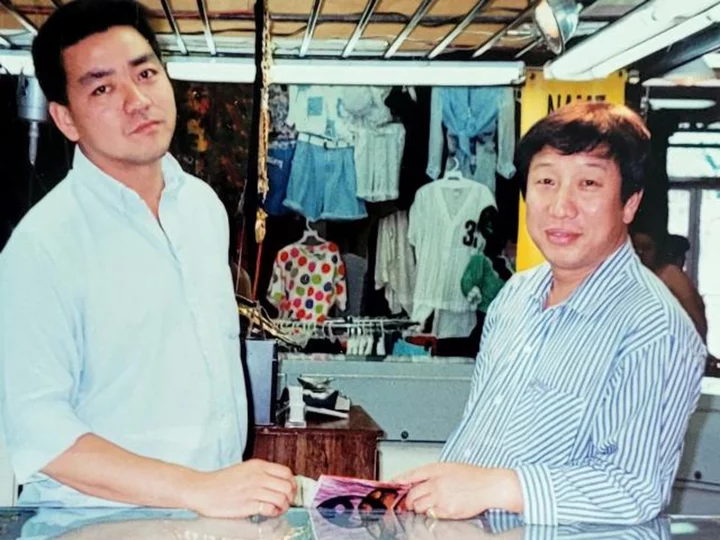
They left South Korea for the American Dream. Now their children are moving back
Korean Americans, born and raised in the US, are migrating to South Korea. But for many, even moving thousands of miles away brings them no closer to finding home.
1970-01-01 08:00
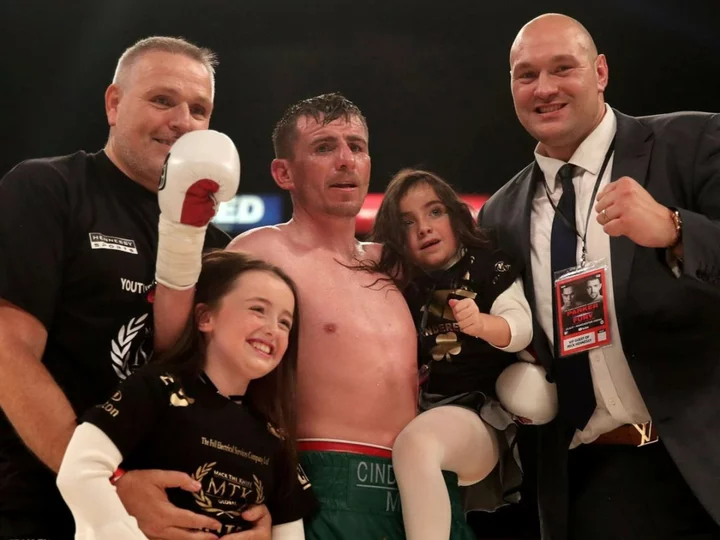
Talented boxer reveals first sign of brain tumour after collapsing at service station
A professional boxer forced to give up his career after a brain tumour was missed by medics for six years told how he was determined to get his life back. Dad-of-two Peter McDonagh, 45, collapsed at a service station in February 2019 after he stopped the car and started vomiting. He was taken to hospital by ambulance, where he underwent a CT scan which identified a brain tumour near his left ear. An MRI was performed, which identified a mass around 2.7cm by 2.7cm with surgeons removing most of the tumour before radiotherapy. But Peter was devastated to be told the mass had been identified on scans in 2013 and 2017, which were carried out for him to renew his boxing licence. Peter, from Leatherhead, Surrey, hoped to return to his old job as a fishmonger, but it was too unsafe due to issues he now has with balance. He now suffers hearing loss, facial palsy, balance disturbance and psychological symptoms, and is plagued by ‘what ifs’ - but is looking forward to getting hitched. Peter said: “Being diagnosed with a brain tumour was a huge shock to me as I’d been undergoing routine scans for many years so I would’ve expected anything abnormal to have been picked up in those. “One of the main things I’ve struggled with as a result of the tumour is my ongoing symptoms and also having to give up my career. “Boxing was a huge part of my life and I’ve found it really tough to come to terms with no longer being able to compete and do what I love. “After my surgery, I tried to return to my pre-boxing trade of a fishmonger but I also had to give that up as I was unable to balance and the risk of getting hurt was too high. “Since then, I get angry and upset sometimes when I think things may have been different if it the tumour been found sooner. “However, I am on the road to recovery and try my best not to dwell on ‘what ifs’ and focus on my future. The consultant neuroradiologist responsible for performing annual MRI screening on Peter as part of his boxing career, admitted that in 2013 and 2017 a brain tumour was visible on scans but wasn’t reported at the time, which “fell below a reasonable standard of care.” It was also admitted that had it been reported, Peter would have undergone earlier treatment - but as it was missed it continued to grow from 2013 to 2019. Peter collapsed on February 4 2019, when he stopped the car, vomited and fell to the ground. After a CT scan was carried out, he went to A&E four days later complaining of dizziness, and was told the CT scan had found a tumour, which was also visible on a subsequent MRI scan. Previous brain scans for his annual boxing licence were reassessed. On March 12 2019, Peter underwent a 15-hour surgery with the aim of removing around 95 per cent of the tumour, leaving a small mass on the facial nerve to allow it to function properly. He was discharged from hospital five days later, with a plan for six-monthly MRI scans. On 15 March, 2021, radiotherapy was performed following growth of the residual tumour. Two years on, Peter continues to be affected by problems with his hearing and balance, as well as occasional facial twitching and tingling, and he also struggles with his mental health. Since retiring from boxing, Peter is now writing a book about his life and the day-to-day difficulties he faces. He added: “While I would give anything to turn back the clock and change what’s happened, I know that’s not possible. “All I can do now is work hard on my rehabilitation. “I’ve had such great support and I’m determined to get my life back. “I’ve even started writing a book and I hope that by sharing my story, I can show others that there’s help out there.” Thomas Riis-Bristow, specialist medical negligence lawyer at Irwin Mitchell, said: “The last four years have been incredibly difficult for Peter, firstly being diagnosed with a brain tumour but then also having to give up a career he loved as a result. “While he is making great progress with his recovery, he continues to struggle with a number of issues, both physically and emotionally, which have a significant impact on not only him but also his family. “We therefore welcome the admission’s made which will help ensure Peter can benefit from the ongoing rehabilitation he needs to help him move forward with his life. “As part of Action for Brain Injury Week, we join Peter in sharing his story to raise awareness of the help available. We’ll continue to support him as he continues with his recovery.” Action for Brain Injury Week runs from May 15-21 and is supported by the charity Headway. Read More Bowel cancer ‘red flags’ that can show two years before diagnosis Hairy Bikers star Dave Myers says one food has helped him return to work after cancer treatment ‘Hundreds’ of cancer patients denied vital treatment as Israel and Gaza trade fire Father shares cancer symptoms he thought was too much coffee Dean Gaffney says I’m A Celebrity medics ‘saved his life’ after bowel cancer scare GB News in ‘significant breach’ of Ofcom rules over Covid vaccine claims
1970-01-01 08:00
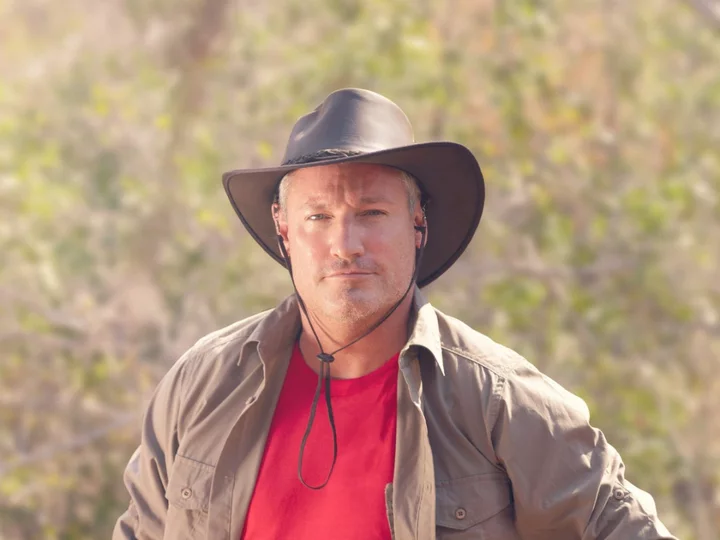
Dean Gaffney says I’m A Celebrity medics ‘saved his life’ after bowel cancer scare
Dean Gaffney has credited the medical team of ITV’s I’m A Celebrity… Get Me Out of Here! for catching a sign of bowel cancer early and “saving” his life. The former EastEnders star said he underwent a medical examination in 2020 as he was being considered for an appearance on the show’s Covid-safe version at Gwrych Castle in Wales. The doctors flagged that Gaffney was "losing blood somewhere" after routine blood tests and initially thought he could have anaemia or an iron deficiency. Speaking to the Mirror, Gaffney, 45, admitted he “thought they were being a bit over the top”, but following a colonoscopy, doctors found a number of polyps in his large intestine and referred him for surgery immediately. “There is no doubt I’m A Celeb and its medical team saved my life. I might not be here today if it wasn’t for them finding what they did,” he said. Gaffney divulged that he was admitted to hospital “within hours” and was “under general anaesthetic” when “they took it out”. Recalling the moments after he woke up from the surgery, Gaffney said the doctor told him: “Had you not come to us today, in three years that could have turned to bowel cancer. You’ve been very lucky.” “I still remember his exact words,” Gaffney said. “I feel so, so lucky. It’s made me so careful about checking my stools.” Gaffney wants to raise awareness around bowel cancer, following in the footsteps of the late Dame Deborah James, who died last June of the disease. He described the Bowelbabe activist and fundraiser as “an inspiration to so many”. “I have so much respect for her fight and the awareness she raised for bowel cancer,” he said. “If I can do a small fraction of that for men, it’d make me very happy.” Detailing what the doctors had found in his large intestine, Gaffney said the polyps were “massive” and one was “20mm, which is big for a polyp”. “They didn’t mess about, they put me under general anaesthetic, operated and burned the polyps away. When I came round, I could see the doctors were slightly angry with me and it was serious,” he continued. “They didn’t mince their words and said how lucky I was it had been found now. I was stunned.” The doctors wanted to know why Gaffney had not noticed blood in his stool, to which he replied that he did not “make a habit of looking at my stools”. “Any time I’ve ever seen a bit of red I just think, maybe I’ve had peri-peri sauce,” he added. “I’m so grateful to the people on the show for bringing it to my attention. I check my stools all the time now. I’d urge others to do it too.” Read More Pierce Brosnan says he simply ‘doesn’t get angry’ Bowel cancer ‘red flags’ that can show two years before diagnosis Hairy Bikers star Dave Myers says one food has helped him return to work after cancer treatment GB News in ‘significant breach’ of Ofcom rules over Covid vaccine claims Ex-Corrie star Chris Fountain shares updates after heart surgery for ‘mini-stroke’ Bo Jackson says he will undergo procedure after year-long battle with chronic hiccups
1970-01-01 08:00

Let us now praise single moms
Advantages of being raised by a single mother outweigh expectations and outlast childhood embarrassment.
1970-01-01 08:00
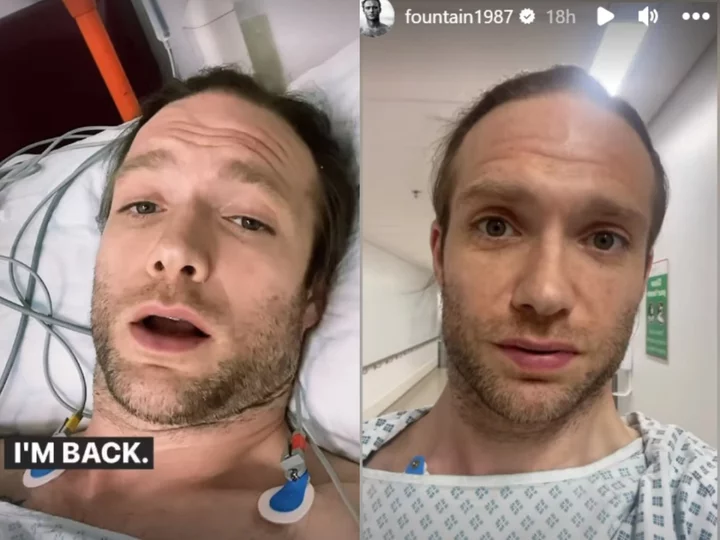
Former Coronation Street star Chris Fountain shares hospital updates after heart surgery for ‘mini-stroke’
Actor Chris Fountain has shared footage from the hospital following his heart surgery. The former Coronation Street and Hollyoaks star was admitted for an operation on his heart, months after suffering a “mini-stroke”. On social media, he updated his followers with posts to his Instagram stories on Friday (12 May). “I’m back, baby,” Fountain, 35, said to the camera while laying in his hospital bed. “Still feeling a little bit woozy, my groin is rather sore. But I’ve finally been allowed to eat and drink, but the cheese sandwich didn’t quite do it.” He added that his mother, who was in the room with him, would be going to find him something more substantial to eat before signing off. Later, he shared a video originally posted by Dutch musical theatre actor Martijn Vogel that explains the procedure that had been performed on him. Fountain’s surgery was to address a patent foramen ovale (PFO), which is described by the NHS as a hole between the left and right atria (upper chambers) of the heart. People with this condition are at a higher risk of stroke. If a PFO does not fix itself, the surgery to treat it consists of inserting a catheter with a closure device through the femoral vein in the leg up to the heart, where the device is left to close up the flap. In a later video, Fountain is seen walking around the hospital. “Back on my feet, they’ve cleared me to walk a little bit,” he said. “What a day! To be honest, I was really quite nervous when I went into the anaesthetist room, it all became very real.” He concluded on a positive note, telling fans that the outlook looks good so far after tests were run to check that the device is “in the right place and working, and not leaking”. The actor starred in more than 300 episodes of the long-running ITV soap, Coronation Street, from 2011 to 2013. He was fired after videos of him rapping about rape were discovered on YouTube. Since then, Fountain has addressed the impact that his firing has had on his life. Read More TikTok Tattoogate: How a tattoo artist sparked backlash for ‘absurd’ pricing and design changes Millie Mackintosh says she was ‘ghosted’ by Meghan Markle after she started dating Prince Harry Elliot Page praised for shirtless photo: ‘It feels so good now’ One in five people may be suffering from ‘dangerous’ sleep disorder Bo Jackson says he will undergo procedure after year-long battle with chronic hiccups As Coronation Street puts the spotlight on sepsis, the signs and symptoms to know
1970-01-01 08:00

How to turn a rundown castle into a luxury retreat
In travel news this week: a restaurant on the edge of space is now booking, a hypersonic startup promises to fly people from Europe to Australia in under five hours and couples' incredible property transformation projects in Italy and Japan.
1970-01-01 08:00

FDA green lights a new type of drug for menopausal hot flashes
The US Food and Drug Administration on Friday approved a new type of drug to treat hot flashes and night sweats during menopause.
1970-01-01 08:00
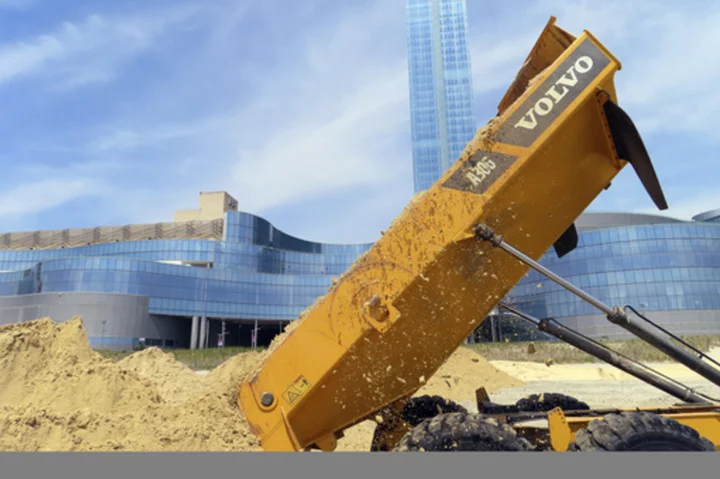
Named after the ocean, Atlantic City casino can't live without a beach, so it's rebuilding one
What’s an ocean without a beach
1970-01-01 08:00

Top Meat Producer JBS Sinks as Loss Shows Diversification Still Has Risks
JBS SA, the world’s largest meat producer, plunged the most in three years as an unexpected loss in
1970-01-01 08:00

Emirates and Etihad are partnering. Will it mean a Mideast super airline?
Emirates and Etihad are the two powerhouse airlines of the United Arab Emirates. We look at what the two flag carriers' partnership means for passengers flying to the UAE -- and for the prospect of a new regional super airline.
1970-01-01 08:00
